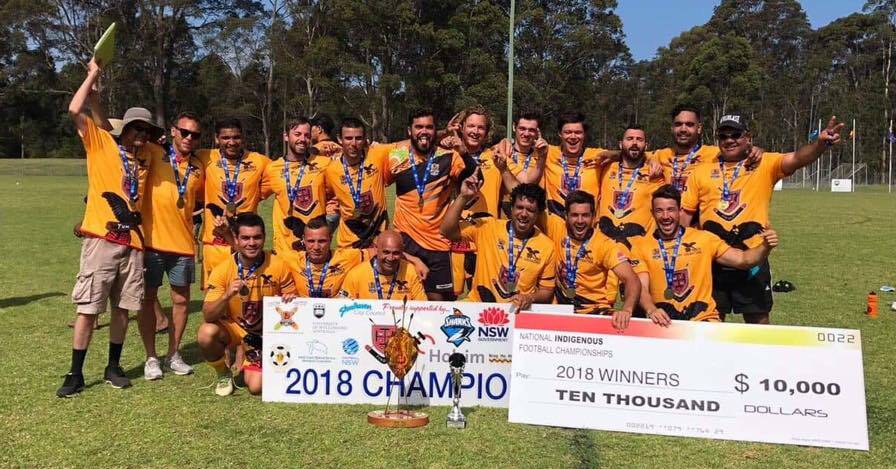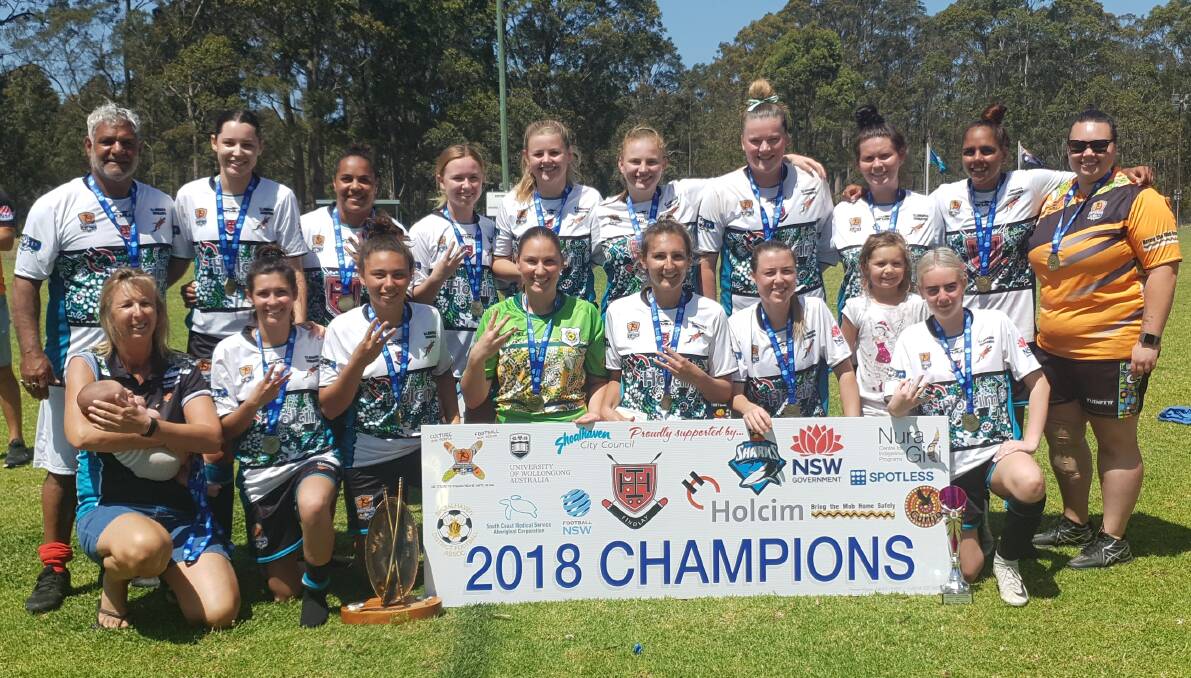
THE 2018 National Indigenous Football Championships wrapped up Saturday, concluding four exciting days of football at South Nowra’s Ison Park.
Subscribe now for unlimited access.
$0/
(min cost $0)
or signup to continue reading
During the third annual running of the event, more than 400 Indigenous footballers from 40 different teams competed for the coveted crown, as the top men’s and women’s Indigenous football teams in the country.
The first grand final to take place on Saturday was the open women’s, where the Illawarra Bungarras cruised to a 4-nil victory against the Yuin Black Cockatoos, to take home the premiership trophy, as well as $10,000 prizemoney.
The open men’s final wasn’t as lopsided, with the Yuin Black Cockatoos edging out the Wirrigas United 2-1, to take out the tournament.
Following the completion of all the action on Saturday, there was a gala dinner held at the Bomaderry Bowling Club – to cap off what was another successful tournament.

Tournament director and creator Bernie McLeod has been one of the main driving forces in introducing football in Indigenous communities, such as Wreck Bay, for a number of decades.
“This tournament always marks a very special occasion on the Indigenous football calendar in Australia,” McLeod said.
“This competition brought together men, women and kids – which included both Jade North’s ‘Kick with a Cuz’ clinic as well as the inaugural under 14s competition – from across New South Wales, Queensland, New Zealand, Northern Territory and the Australian Capital Territory, under the tournament motto of ‘Strengthen and Unite as One’.”
McLeod, who will again accompany the Australian Indigenous men’s and women’s side when they take on the New Zealand Maori’s in January’s clash of cultures trans-Tasman football series tour, is excited by the continued growth of the tournament.
“The National Indigenous Football Championships acts as an opportunity to showcase the skills of our first nation’s players,” McLeod said.
“We’ve received overwhelming support over the past three years from the football fraternity as well as the Indigenous communities across the nation – it keeps getting bigger and stronger.
“This year’s tournament showed yet again the power and passion of football and how it can bring people together like no other sport can.”
Related content:


